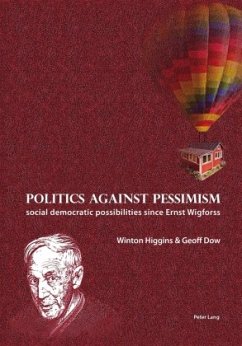Neoliberalism has now failed, so can a social democratic resurgence replace it? This book retrieves the political thought of Swedish politician Ernst Wigforss to explore the unrealised potential of social democracy. Wigforss drew on many schools of thought to produce an alternative social democratic strategy.
It outflanked economic liberalism, allowed his party to dominate Swedish politics for a half-century, and his country to achieve affluence and social equity as converging rather than competing objectives.
OECD economies have since evolved political capacities - the welfare state, corporatist regulation, expanded citizen entitlements, civic amenity - far in excess of pessimistic evaluations offered by mainstream analyses. This book suggests that such developments confirm Wigforss's ideas, confounding conventional pessimism.
Full employment, social equity, economic democracy, new political institutions, and transformative economic management are now more imaginable than ever in western countries. But their achievement depends on a radical reformist political mobilisation of the kind that Wigforss inspired, one which integrates these aspirations as mutually reinforcing goals.
It outflanked economic liberalism, allowed his party to dominate Swedish politics for a half-century, and his country to achieve affluence and social equity as converging rather than competing objectives.
OECD economies have since evolved political capacities - the welfare state, corporatist regulation, expanded citizen entitlements, civic amenity - far in excess of pessimistic evaluations offered by mainstream analyses. This book suggests that such developments confirm Wigforss's ideas, confounding conventional pessimism.
Full employment, social equity, economic democracy, new political institutions, and transformative economic management are now more imaginable than ever in western countries. But their achievement depends on a radical reformist political mobilisation of the kind that Wigforss inspired, one which integrates these aspirations as mutually reinforcing goals.








